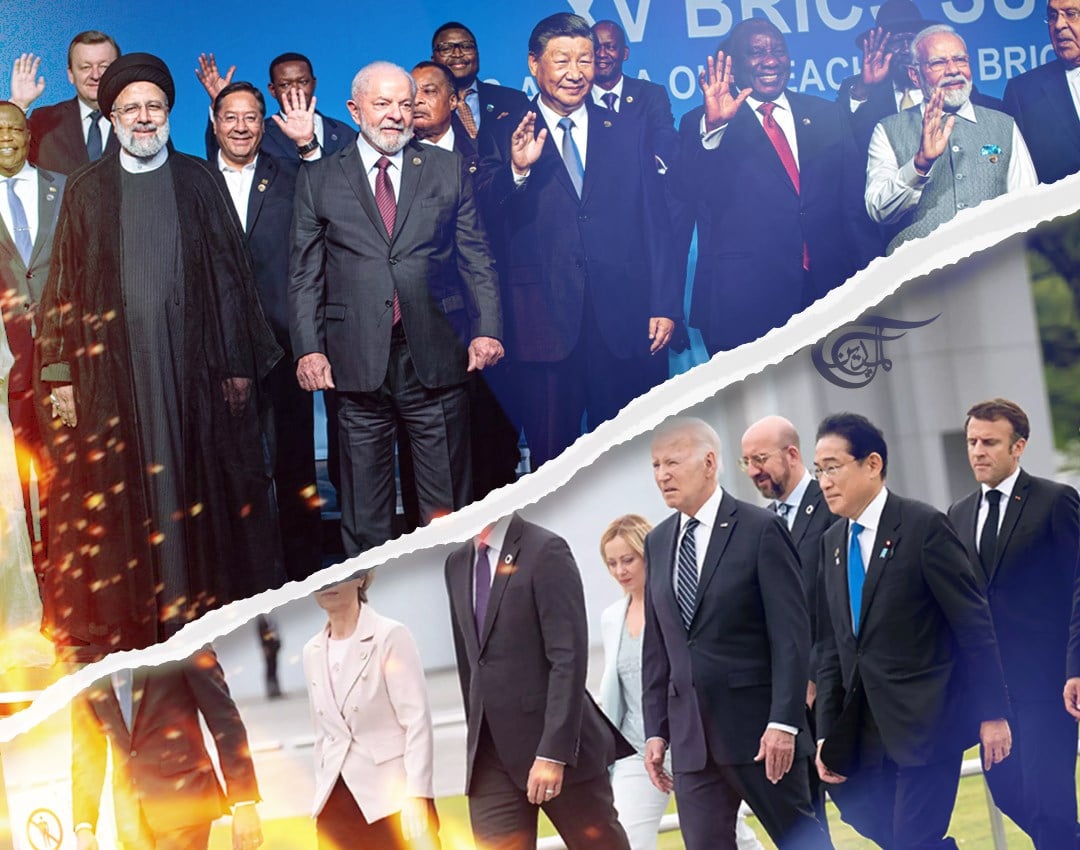Multipolarity is here to stay
For a correct understanding of the current situation, it is very important to avoid drawing bold parallels between the BRICS and their opposition to the Western alliance, with the old bipolarism that placed the United States and its Western allies in confrontation with the Soviet camp.
-

If rationality prevails, commercial interdependence could promote negotiations to establish a safer international environment. This would largely depend upon the rationality of the main governmental actors.
In recent years it was said, with increasing frequency, that a process of growing multiplication of new centers of international power was underway, and destined to crystallize into an international chessboard much more complex and balanced than in the past. But it was insisted, it was a process in progress and bristling with obstacles because the US empire had mobilized its enormous economic, financial, military and geopolitical resources to abort this process. For this reason, no one could predict how long this global geopolitical transition would last, but it was assumed that it would take years.
Yet, after the end of the BRICS summit in Johannesburg on August 24, the question was resolved, and today we can say that this date marks the birth of a new era in the history of the international system. In other words, the geopolitical transition has passed a decisive milestone, a point of no return, and the era of American unipolarism and its worldwide dictatorship has come to an end.
It is no longer an ongoing process advancing Pari-passu with the slow but inevitable decline of the global power of the United States; the rapid ripening of trends that had accelerated considerably in recent years to consolidate this new architecture of international power that is here to stay. The COVID-19 pandemic and the subsequent laborious readjustments of the capitalist economy: Its exacerbated tendencies towards an increasing concentration of wealth and income, its unbridled depredation of the commons with its catastrophic consequences on the climate, and its uncontrollable parasitic financialization, together with the traumatic consequences of the war in Ukraine were the factors that precipitated the sudden culmination of this transition.
Looking at the international scenario, Brazilian analyst José Luís Fiori asserts that with the incorporation of six new countries to the BRICS “a true 'systemic explosion' in the international order" built by the West over the last three centuries took place. Not very different is the opinion of one of America's leading economists, Jeffrey Sachs, when he declared in a Swiss weekly magazine that "(W)e are now in a post-American, post-Western world. We are in a truly multipolar world. We are in a world where the BRICS countries are bigger than the G7 countries ... and the US does not accept that transition."
We would add that this is not only a post-American world but also, and even more importantly, a "post-hegemonic" world, since no international actor has the will - and the capacity - to replace the United States in its role as the "lonely superpower" of capitalism, or the "lone sheriff", as the late Professor Samuel P. Huntington used to call it. (1) In other words: U.S. unipolarism is now a ghost of the past, unsuccessfully struggling to regain the lost materiality of past times.
The international scene now shows a very different picture from the one that prevailed a decade ago. The consolidation of the BRICS was largely facilitated by the renewed activism played by the Brazilian President Luiz Inacio "Lula" de Silva putting an end to six years of discrete withdrawal from BRICS promoted by the presidencies of Michel Temer and Jair Bolsonaro, when the South American giant subordinated its international policy to the priorities dictated by the White House.
With the return of Lula, the momentum originating first and foremost in Beijing gave new impetus to the organization, endowing with an invaluable Western leg to what otherwise seemed to be only a three-legged Asian table supported, in part, by the weak anchor that South Africa could offer. Thanks to Brazil's vigorous activism, the BRICS not only consolidated themselves as a commercial and financial bloc, but were also able to undertake a significant enlargement that dwarfs the G7's weight in the world economy. It would not be the first time in history that a trade and financial agreement becomes a political-military bloc, especially if it is subjected to continuous threats and aggressions by its contenders, as exemplified by the policy of “unilateral sanctions” that Washington and its pawns impose on China and Russia.
That said, it should be made clear that the rupture of neo-liberal globalization and the crystallization of two distinct economic and geopolitical spaces is only in its early stages, and that the definitive disappearance of all the features that constituted American unipolarism will take some years.
As noted by José Luis Fiori, the consequences of this mutation in the international chessboard will not be "immediate but will manifest themselves in successive and increasingly stronger waves" as the Atlantic alliance continues to weaken over time. Fiori also adds that this space of coordination will neither lead to the creation of a "military organization like NATO nor an economic and institutional creature like the European Union." However, the war in Ukraine and the growing bellicosity of Washington and its European and Asian allies -mainly Japan and South Korea- against Russia has changed the organization's attitude towards the prevailing economic and financial institutions of the "rules-based world order" imposed by the United States and, we would add, also in front of those of the United Nations system that expressed the balance of power existing at the end of World War II and which have little or nothing to do with today's world.
If in the past this set of institutions was accepted, not without complaints, by the BRICS members, everything now seems to indicate that the current mood is to propose ever more forcefully the change of this biased institutional superstructure of international capitalism. And now the challenging powers have the economic and technological strength to try to do it with a good chance of success. But, even so, it would be premature to speak of "a new world order." The most accurate description of this new reality would be to say that we are in the presence of a competing duality of world orders, with different territorial scopes: one, the declining American order in retreat, and another, with its epicenter in Asia, which has just burst in with force but which, for the time being, is far from imposing itself on a planetary scale.
One last consideration: For a correct understanding of the current situation, it is very important to avoid drawing bold parallels between the BRICS and their opposition to the Western alliance, with the old bipolarism that placed the United States and its Western allies in confrontation with the Soviet camp. One of the distinctive features of the current situation is that the challengers of US hegemony maintain strong ties of economic interdependence with the United States and European countries, something that did not exist at all during the Cold War years.
Trade between the United States and China, for example, stood at around $700 billion in 2022, something unimaginable in the years of Soviet-US bipolarism. Beyond frequent rhetorical overtones, this commercial relationship conditions, at least in part, the attitudes and concrete policies of both countries, and by extension of both blocs. Yet, a trade war can trigger a conventional war, and the continued threats by the United States and NATO countries against China are a worrying proof of this.
If rationality prevails, commercial interdependence could promote negotiations to establish a safer international environment. This would largely depend upon the rationality of the main governmental actors. The weight of the military-industrial complex in the United States (and throughout the West) forces us to be pessimistic about it. The way the Ukrainian crisis is resolved will give us a key to predict what the more likely outcome could be. In any case, and beyond these eventualities: Welcome to multipolarity!
-------------------------------------------------------------------------------------
(1) Huntington's paper can be found in: Foreign Affairs, Mar/Apr 1999, Vol. 78, Issue 2. We noted the emergence of these trends toward a post-hegemonic world shortly after the collapse of the Soviet Union and the bipolar order and while established thinking in both U.S. and European academias sere busy singing the hymns of the "new American century." See our "Towards a Post-Hegemonic Age? The end of Pax Americana," in Security Dialogue, Vol. 25, No. 2, 1994.

 Atilio A. Boron
Atilio A. Boron
 8 Min Read
8 Min Read











